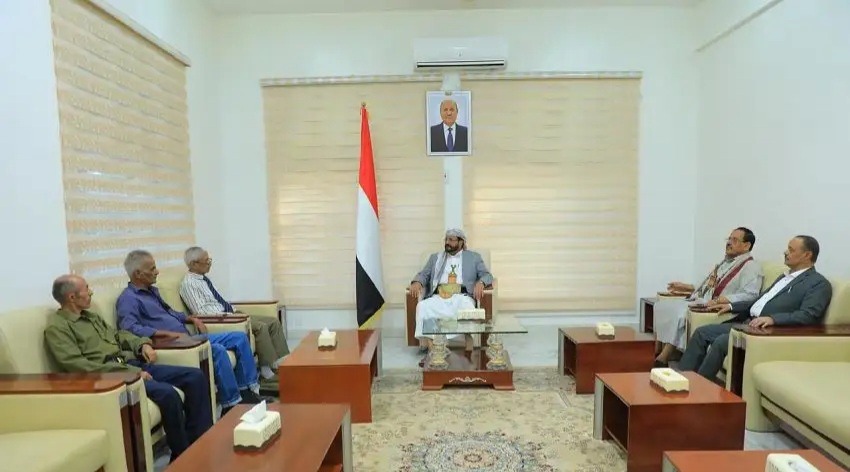


Barran Press
On Wednesday, October 30, 2024, Lieutenant General Sultan Al-Arada, a member of Yemen's Presidential Leadership Council, emphasized the need for a strategic plan to protect the country's archaeological sites and cultural heritage. He directed local authorities in Ma'rib, located in northeastern Yemen, to coordinate with the General Authority for Antiquities to implement protective measures for these important sites.
During a meeting with Ahmed BaTaye'a, the head of the General Authority for Antiquities and Museums, Al-Arada underscored the importance of collaborative efforts between government and community stakeholders to safeguard Yemen's archaeological treasures, which he described as integral to the Yemeni identity and part of the global cultural heritage.
Al-Arada noted that with proper care and development, archaeological sites and museums could become significant economic resources. He stressed the importance of raising public awareness regarding the value of cultural heritage and the need for a comprehensive strategy to promote its preservation.
He praised the outcomes of the first consultative meeting on cultural heritage protection, organized by the authority in Ma'rib in October of the previous year, highlighting the necessity of implementing these recommendations to prevent damage and deterioration of archaeological sites.
In this context, Al-Arada instructed local authorities to work closely with the General Authority to establish protective measures for key sites, including the Temple of Awam, the Temple of Baran, the Marib Dam, and the ancient city of Marib, which was recently added to UNESCO's World Heritage List. He also called for the completion of necessary constructions at the provincial museum to ensure proper preservation and display of archaeological artifacts.
In response, BaTaye'a expressed appreciation for Al-Arada's support and acknowledged the cooperation of local authorities in Ma'rib in maintaining archaeological sites. He reviewed the outcomes of the previous consultative meeting, emphasizing the role of such gatherings in enhancing local capacity and encouraging citizens and researchers to organize tours to explore Yemen's rich civilizations.